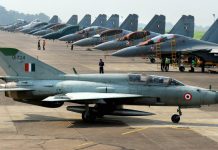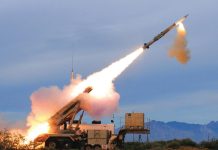US President-elect Joe Biden has revealed his intention of holding a ‘Summit for Democracy’ in his first year in office to “strengthen our democratic institutions, honestly confront the challenge of nations that are backsliding, and forge a common agenda to address threats to our common values”. But, will he succeed?
Biden’s experience as Vice President under President Obama in promoting democracy in the Arab world during the ‘Arab Spring’, whose 10th anniversary was on December 17 (Thursday), is hardly inspiring for his renewed zeal. Promotion of democracy by outside powers in “non-democratic” countries has hardly been nice stories, with dreams dashed and hopes shattered.
The Arab Spring arose from the cradle of the protest movement in Tunisia when Muhammad Bouazizi, a Tunisian street peddler, set himself ablaze on December 17, 2010, to protest against the corrupt policemen who confiscated his wares. The rage, sparked from his self-immolation, fuelled the ousting from power of Zine al-Abidine Ben Ali, the long-serving authoritarian president of the country, in January 2011.
This, in turn, ignited a wave of revolutionary protest across the region and came to be known as the Arab Spring. Seemingly invulnerable and long-serving authoritarian rulers fell, one after the other — in Egypt, Libya, and Yemen. It was said that the Arab world would see the onset of democracies. The Western countries, led by the US, actively supported the insurgencies in Syria, Iraq, and Libya.
We must prepare to meet the challenges of the future — not keep fighting the wars of the past. pic.twitter.com/MI4uXHUyKG
— Joe Biden (@JoeBiden) December 10, 2020
But 10 years later, only Tunisia has survived as a democracy; others have returned to authoritarian rules. It is estimated that half a million people have died during the Arab Spring and another 16 million displaced from countries no longer recognizable.
Even Tunisia, though it has withstood assassinations, terrorist attacks, and the ideological gulfs of its leaders, has become increasingly unmanageable. Its falling economy and poor governance have left people disillusioned.
There is acute unemployment. Many youngsters have joined the jihadi groups. And many countrymen have migrated illegally to Italy. Things continue to move to the worse.
Having promoted the movement initially, the West has backtracked and now remains a silent spectator. In fact, the West in general and the United States in particular, displayed understandable double-standards, proving once again that realism and national interests matter more than idealism in the pursuit of foreign policies of the major nations.
You cannot promote democracy selectively in countries like Iraq, Syria, and Libya but remain best friends of the tyrannical monarchies such as Saudi Arabia and Qatar. The West supports all these oil Sheikhdoms because of its national interests (oil, petro-dollars in Western banks, Arab investments, and containing Russia) and closed its eyes when Saudi Arabia intervened militarily in Shia-majority Bahrain to defend its Sunni ruler.
During the Arab Spring, there were massive crackdowns on the protestors seeking reforms in governance in Saudi Arabia, Qatar, and the United Arab Emirates.
Starting with a street vendor in Tunisia, the Arab spring protests spread over much of the Middle East as people fought against oppressive governments
On the 10 year anniversary of the uprisings, here are the 10 defining moments of the movement https://t.co/2QeDEVrSDn pic.twitter.com/VcgQUcBO9u
— BBC News (World) (@BBCWorld) December 17, 2020
Democracy is not simply about the elected governments; it is equally concerned with the value systems. That way, Iraq under Sadam Hussein, Libya under Col. Gaddafi, and Syria under Bashar-al Assad had been really secular and progressive. These were the countries (and Syria still is) where women and Christians enjoyed civil rights, the Kurds (following the first Gulf War) had a modicum of political autonomy.
And more importantly, these are the countries where al-Qaeda, which was responsible for the 9/11 attacks on the US, did not train or drew money and arms from. Yet, neither the US nor its other western allies could coexist with these countries. They fought to replace their rulers and decimated their soldiers.
In fact, these very decimated areas later became the strongholds of the so-called Islamic State (IS). So much so that many of these IS recruits battled along with the Western agents and arms. The US then did not consider the act to be ironical, its otherwise concerns for fundamentalist- terrorism notwithstanding.
In fact, a study not long ago said that after the American involvement in and support for the Arab Spring in Egypt, Libya and now Syria, terrorist attacks jumped more than 40 percent globally.
All told, democracy is not a question of numbers; the value systems in a democracy are equally important. It is strengthened through social mores, customs, and habits. And these are the things that cannot be imported from outside; they develop organically from within, in cultural soil conducive to their growth. In this, the Arab world is not fertile for democracy.
Here, the cultural and religious impediments are immense. The persistence of tribal and feudal mentalities about women, family honor, clan loyalty, and religious belief that all political and civic life must be subordinated to Allah’s will are too strong to overcome in building democratic institutions.
#Tunisia is witnessing an economic emergency on the 10th anniversary of the #Arab Spring revolt. Unemployment rates returned to 2011 levels, as well as rising poverty, public debt, and unprecedented state budget deficit. pic.twitter.com/PwpfDaDwg3
— Forbes Middle East (@Forbes_MENA_) December 16, 2020
All told, the democracy as witnessed in the West is based on a “unifying principle” that gives citizens a common identity. But in other parts, there have been other “unifying principles,” such as tribal affiliation or religious faith, that give peoples their collective identities.
For many regions, politics cannot be divorced from its religions. This is particularly true in the case of Islam whose doctrines and dogmas make creating true liberal democracy – with its separation of state and religion, tolerance for minorities, and respect for individual human rights and freedom – even more difficult.
Viewed thus, the failed Arab Spring should make Biden realize that American democracy is unsuited for the consistent, coherent, long-term foreign policy and intervention abroad required to nurture liberal democracy in other countries.
(Disclaimer: Views expressed are the author’s own)
Follow EurAsian Times on Google News




